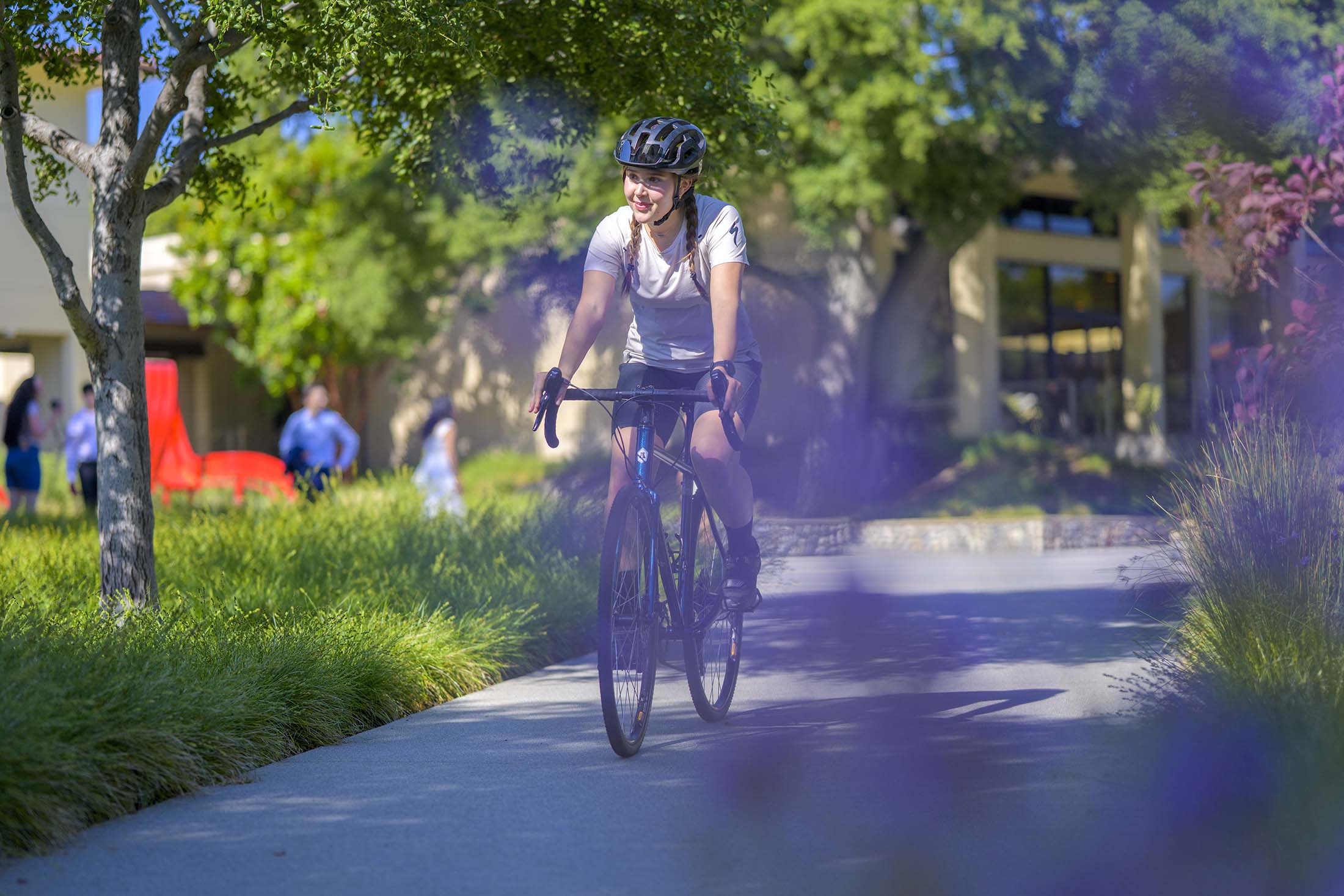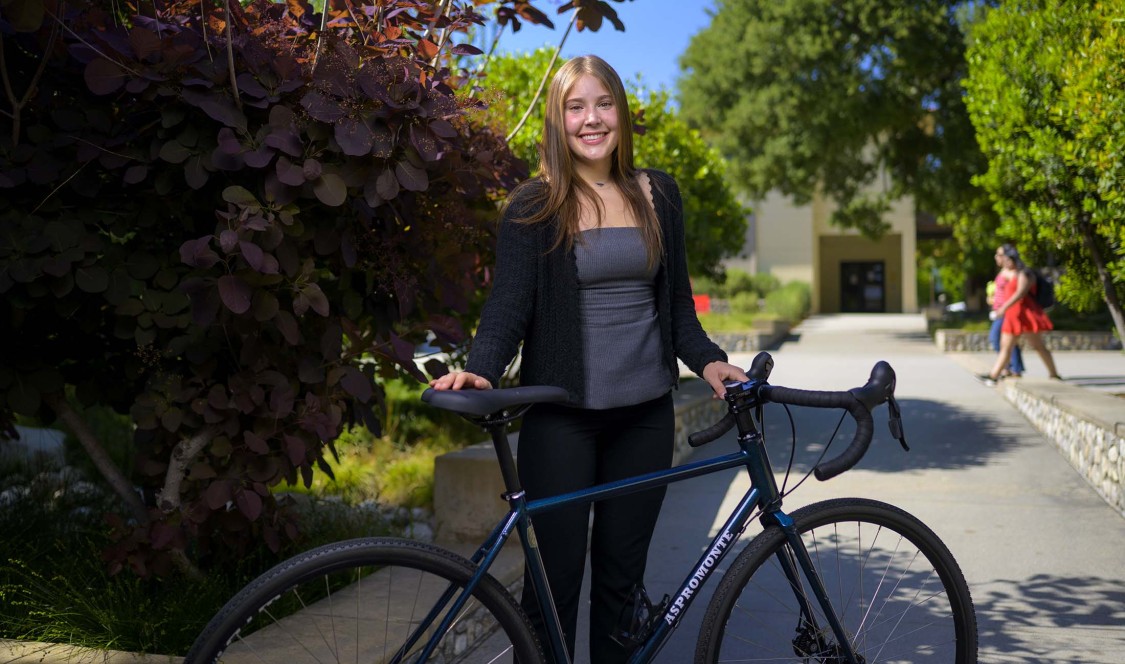While necessity can be the mother of invention, in the case of avid cyclist Josephine Aspromonte ’26, necessity was the mother of re-invention.
Frustrated with having to alter high-performance bikes, whose standardized frames and components “frequently overlook the unique proportions and needs of female riders,” Aspromonte decided to design and build a bike that fit her own needs, and those of other female cyclists.
She likened riding a bike designed and built for men to wearing a pair of jeans designed for men.
“They can fit you. You can like them, and you can rock them. But when you try on a pair of female jeans, you can feel so much more confident in them, and they can fit you right from the beginning,” said Aspromonte.
Growing up near the Santa Cruz Mountains, Aspromonte’s father introduced her to the joys of mountain biking and encouraged her to take it up too. At age 15, she began working in a local bike shop, where she encountered the casual sexism of a male-dominated sport.

Rather than being dissuaded from the sport she loved, Aspromonte began racing in high school on cross country and enduro mountain biking teams, “and before I knew it, I was an ambassador for Jamis Bicycles and was competitively racing.”
These experiences deepened her interest “in representing women in cycling and supporting others who might find themselves in a similar position,” and resulted in her decision to make her own bike “from scratch.”
Noting that, “females typically have shorter torsos and longer legs,” Aspromonte shared that she modified “all of the bikes that I have ever owned to fit my body and my needs—and this is often true for other female riders as well.”
She pitched the build-her-own-bike idea as a Gould Center for Humanistic Studies Creative Works project, a 10-12-week summer fellowship program that “provides CMC students in the humanities the opportunity to engage in a fully funded self-directed project that culminates in some type of creative output.”
Through the fellowship, Aspromonte conducted research into the history of women and biking, as well as the current women’s bike industry. She also set up shop in Roubaix, France, where she took a bike frame-building course with a custom bike maker, and designed and welded her own bike frame, “which offered a solution to my challenges.”
In the end, her project, “Pedaling Towards Equality: Advocating for Gender Equity in the Bicycle Industry” inspired both academic and personal growth.
Majoring in Economics and Public Policy at CMC, Aspromonte has seized additional opportunities at CMC to expand her horizons. Through the Center for Global Education, she spent the fall semester of her junior year in Ushuaia, Argentina, where she explored southern Patagonia and Antarctica, focusing on the environment and climate change.
Aspromonte has also conducted projects with the Policy Lab and the Claremont Consulting Group, and was selected to become a Handley Leadership Fellow through the Kravis Leadership Institute’s Women in Leadership Development (WLD) Initiative.
“I think that the wide variety of different skillsets that you learn at CMC can be applicable to anything you do, such as taking on a passion project like the Creative Works fellowship and traveling in Europe solo,” Aspromonte said. “I remember when I was going to meet the frame-builder that I was working with for the first time, I was really nervous. I was a 19-year-old woman who is in this non-English speaking place and about to go make a bike frame! But I used the skillsets that I’ve learned from the Handley Leadership Fellowship, which was really impactful for making me feel more confident.”
Applications for summer 2026 Creative Works Fellowships open in the spring.

